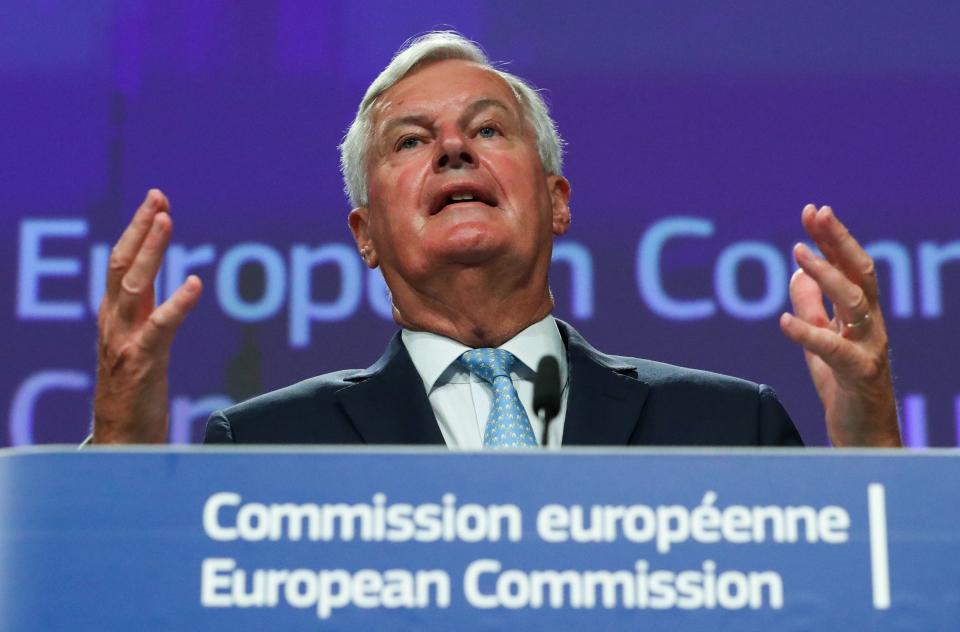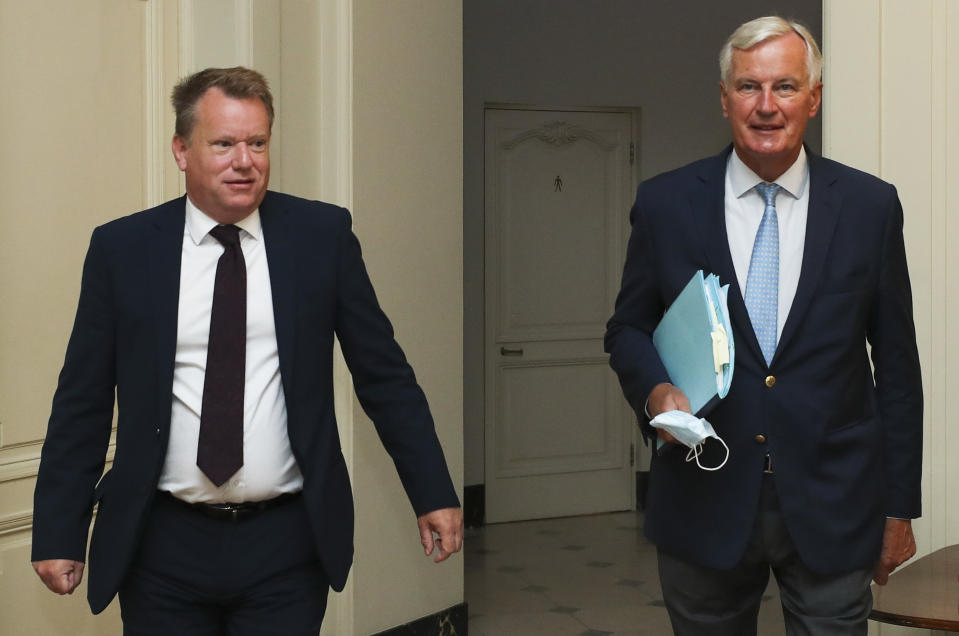Downing St plays down 'winter food and water shortages' report (but it does 'plan for all eventualities')

Downing Street has played down the prospect of food and water shortages this winter if a potential no-deal Brexit is combined with a second wave of the coronavirus.
A leaked “reasonable worst-case scenario” document painted a stark picture about the possible impact of another wave of coronavirus and the UK potentially failing to secure a trade deal with the EU.
The plans, which are dated July 2020, include the Royal Navy having to be drafted in to protect British fishermen from clashing with fishing boat incursions, and parts of the UK facing power and petrol shortages from thousands of lorries being stranded in Dover.
They also suggest water could be rationed and that shortages of medicines caused by port blockages could lead to animal diseases spreading through the countryside.
A Number 10 spokesman said: “That report is not a forecast or a prediction of what we think will happen, but – as you would expect any responsible government (to do) – we prepare for all eventualities.
“In terms of food and water we have a robust and resilient sector and we are not anticipating that will change.”

UK and EU negotiators warned there has been little progress during the latest round of post-Brexit trade deal talks last week and that negotiations have gone cold.
EU negotiator Michel Barnier said that he is “disappointed” with the progress of the negotiations and accused the UK of showing “no willingness” to compromise on the bloc's priority areas in order to agree a trade deal before the end of the year.
He also said he was “surprised” by what he described as a UK refusal to “move forward” on key issues, after Boris Johnson “told us in June that he wanted to speed up the process during the summer”.
Read more: No-deal Brexit will hit Britain harder, EU's Barnier says
He added: "Too often this week it felt as if we were going backwards more than forwards.”
Scientists fear the winter months could bring about a second wave of coronavirus in the UK.
This could mean the NHS being overwhelmed if restrictions caused by a no-deal Brexit mean hospitals do not get supplies and face a potential loss of EU staff while dealing with health problems from floods, flu and the second coronavirus wave.
Shortages of medicines caused by port blockages could also lead to animal diseases spreading through the countryside, the report says.

In 2019, UK hospital contingency planning documents released under Freedom of Information rules in response to a request from a pro-Remain organisation outlined how a no-deal Brexit would “severely impact hospital services and could even prompt ward closures and interruptions to children’s services”.
Preparations from 35 hospitals in England described serious disruptions to the provision of healthcare services for patients, Politico reported.
One hospital said a loss of EU staff could lead to the suspension of services, while another warned it may be unable to process tests because of missing medical supplies.
Read more: Government accused of using coronavirus crisis to ‘quietly’ plan for no-deal Brexit
On Monday, a government spokesperson said: “At the end of the year we will be outside the single market and the customs union, whatever the outcome of negotiations, and intensive planning is underway to help ensure that businesses and citizens are ready to take advantage of the opportunities and changes that will bring.
“This includes launching a comprehensive communications campaign to make sure everyone knows what they need to do to prepare.
"As a responsible government we continue to make extensive preparations for a wide range of scenarios, including the reasonable worst case.
“This is not a forecast or prediction of what will happen but rather a stretching scenario. It reflects a responsible government ensuring we are ready for all eventualities."
Michael Gove, chancellor of the Duchy of Lancaster, said: “We got Brexit done with a great deal in January and we are working flat out to make sure the United Kingdom is ready for the changes and huge opportunities at the end of the year as we regain our political and economic independence for the first time in almost 50 years.
Read more: Britain unveils new Brexit plan with warning of no-deal
"Part of this work includes routine contingency planning for various scenarios that we do not think will happen, but we must be ready for come what may.
“Whether we trade with the EU on terms similar to Canada or to Australia, a brighter future awaits as we forge our own path.”
Coronavirus: what happened today?
Click here to sign up to the latest news, advice and information with our daily Catch-up newsletter

 Yahoo News
Yahoo News 
